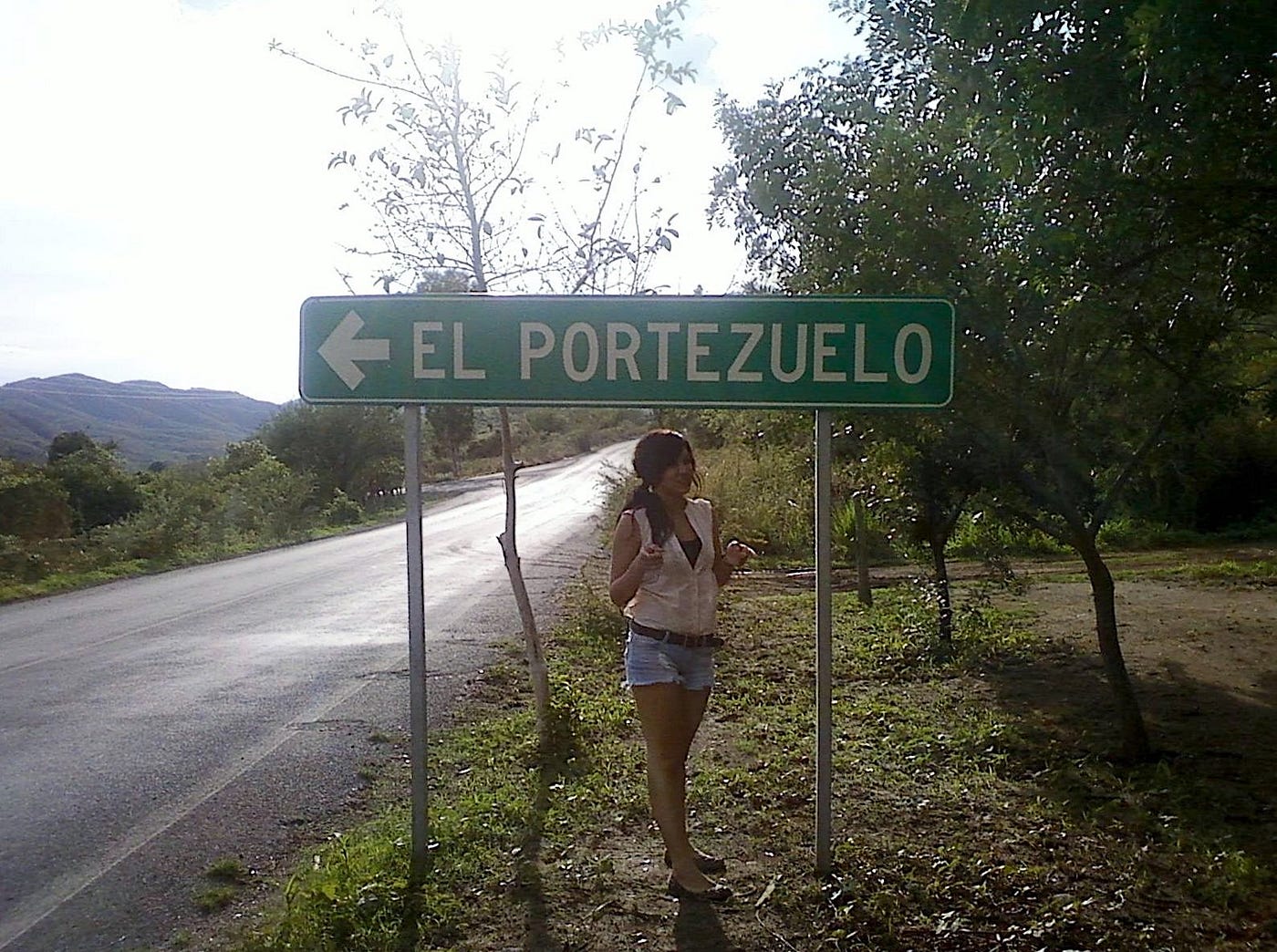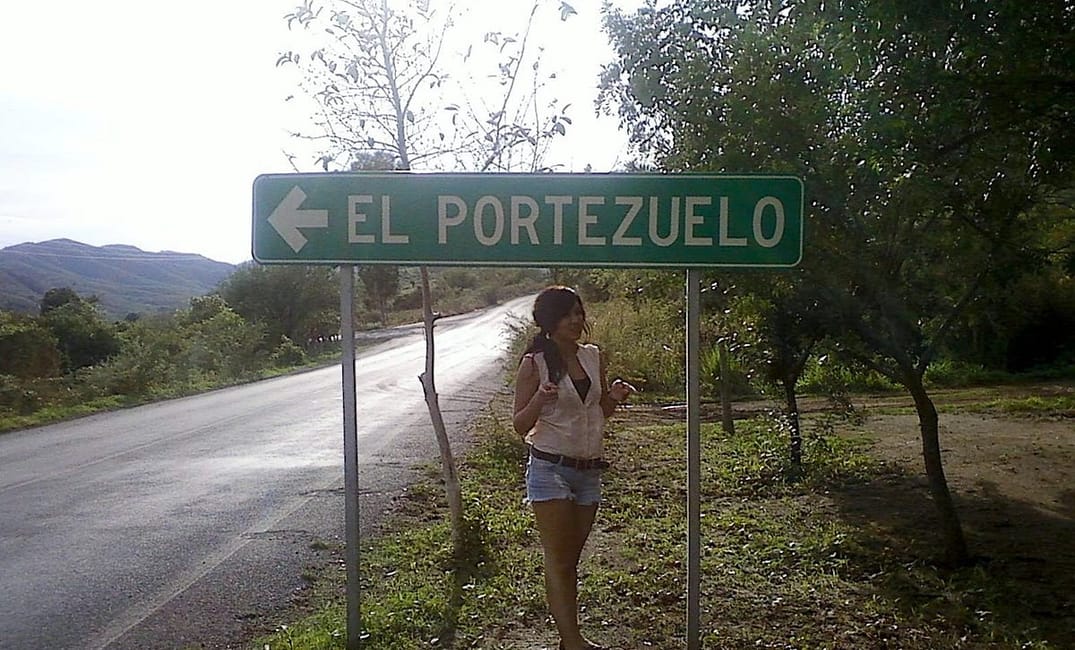
When the plane lands at the Miguel Hidalgo y Costilla Guadalajara International Airport, I’m already filled with the irrepressible emotion of being back in my parents’ hometown in Mexico—a town they left for the United States before I was born.
It’s here that I feel a deep sense of belonging, but it’s coated with the reality that I’m technically a foreigner.
Ever since I can remember, I’ve traveled back to El Portezuelo, a small town (referred to by its residents as a ranchito) located in the municipality of Ameca, Jalisco, in Mexico. Revisiting year after year has become some kind of addiction for me. I love the smell the earth produces when there’s a strong summer rainfall, turning the surrounding mountainous regions into wild colors of green. I long for the homemade tortillas placed on ashes to make tostadas, craving them when I’m away. It’s home to fewer than 1,000 people. Everyone I’ve met there is filled with a passion for life that’s infectious.
They left to restart their lives, to escape a life that did not guarantee them a bright future.
But what makes this little village so special to me is my family history and the traditions it carries. As I’ve grown older, I’ve realized the influence my parents’ hometown has had not only on them but on the making of my own identity.
In El Portezuelo, I have the opportunity to create connections with family members of all ages—like my apa (grandfather) and my Tia Maria, who sits outside her house in the evening and watches people pass by — something I never had the chance to do in California since my parents were the first to leave their town to reside in the United States. They left to restart their lives, to escape a life that did not guarantee them a bright life ahead. The land of opportunity was at their reach, and they were not going to miss their chance.
Once they found stability in California, I was born—a creation who represented their life in Mexico and the hope for a better future.
They say that they would rather be poor than forgotten by their family.
I have few to no family connections here in the states. The rest of my family didn’t follow my parents after they saw the consequences that came along with leaving their homeland—being far from family support—so many have never immigrated to el Norte. The ranchito provides a stable family life that is not as readily available in California, and it’s what keeps everyone in harmony.
I have uncles and aunts who live in houses connected to one another, allowing my nephews to go from one house to the next if they are in need of a snack. My relatives in Mexico never seem to forget to mention the harsh realities of living in the United States—that people there live lonely lives. They say that they would rather be poor than forgotten by their family.
Being the first US-born child in my family has always made it complicated for me to navigate my identity. After all, my parents never truly assimilated into American culture, holding on to so much of their life back in Mexico. They never truly learned the language and went only to places that felt like their homeland—places like bailes, the flea market and the Catholic church.
My father and mother never felt like they belonged in California. For this very reason, they traveled back to Mexico on a regular basis, and I always traveled with them as a child. There were time periods when I would reside in El Portezuelo for up to six months at a time, resulting in me having to be held back a grade in Don Pedro Elementary School.
But to some degree, I’ve always dealt with the feeling of not being a true participant in these traditions, experiences and their society.
Spending time in the town, I’ve learned traditions like El Carnaval de Ameca, Las Fiestas de El Portezuelo and the end-of-year student performances. These mean everything to me because they have been passed down from generation to generation and have helped me answer questions about parts of my identity.
It’s as if being a first-generation Mexican American places us all under a separate category — a place where we can navigate the American way of living, yet we will never be considered true Americans.
But to some degree, I’ve always dealt with the feeling of not being a true participant in these traditions, experiences and their society. I’m technically American, not Mexican, as I was reminded by Mexican government officials who recently denied my entry into Mexico because I had listed my nationality on my visa as “Mexican American.” Apparently, that’s not an acceptable answer — and those two terms cannot coexist. The officers demanded I go to the back of the line until I wrote that I was only an American and nothing else. If only it were that easy for me to identify under one single nationality.
The blood that runs through my veins comes from my Mexican-born parents, yet I was raised in American society. It’s as if being a first-generation Mexican American places us all under a separate category—a place where we can navigate the American way of living, yet we will never be considered true Americans.
At 26 years old, I still find myself confused as to where I truly belong in society. My Spanish is filled with mistakes and mispronunciations. The music I listen to varies from Antonio Aguilar to the Chainsmokers. I grew up with so many of the traditions/customs from our ancestors, only to be considered American by my Mexican-born counterparts.
I’m well aware of the opportunities and the life I’ve been given because of my parents’ choice to move to the United States. In El Portezuelo, the amenities that are easily obtained in California are not at my disposal. In order to get accessible Wi-Fi, residents have to stand in front of la secundaria, where the Mexican government has made it accessible for the school to have free access to wireless Internet. There are no built-in air conditioners or tasty coffee shops where I can sit and just gather my thoughts.
But I find appreciation for the people living their lives in a simpler way: by connecting with others, spending time outdoors and working on projects to better their households, rather than shopping or scrolling through social media. I can’t help but wonder what life would have been like if I had grown up in Mexico when I see the deep connections my family members have—with the town, the language, the customs and each other.
My parents always wanted me to be the all-American child — to have a better life in the United States — yet they raised me with a profound love for a county that is on the other side of the border. I’m sure they had no idea what creating an infatuation with a country I wasn’t born in would do to me—the type of confusion it would create. Yet I don’t doubt that they were just doing their best in a complicated situation. How could I blame them for teaching me not to forget where I truly come from?
Thinking about the future, I often wonder how I will teach my children to love both countries without causing the same kind of personal-identity confusion or misunderstanding. But perhaps that confusion makes you — or me — only stronger.
My parents have decided to move back to Mexico once my father retires in 2019, already having built their house and ready to start the chapter they left unfinished when they moved to California. Now I’m faced with the decision to stay in a county where I have witnessed my father work his entire life in agriculture, only to be forgotten, or to go to Mexico, a county where I wasn’t born and will never be considered one of their own making.
I’m still not sure what I will do, but by working through these realities, I’ve learned more about myself and to embrace rather than shun my bicultural upbringing. Being Mexican American, like for many other immigrants, means understanding two distinct nationalities — being the byproduct of two worlds that have to coincide with one another for the rest of their existence. I might not have all the answers, but I’m in complete acceptance of my making.
Hey! The Bold Italic recently launched a podcast, This Is Your Life in Silicon Valley. Check out the full season or listen to the episode below featuring former SF mayoral candidate and writer Broke-Ass Stuart. More coming soon, so stay tuned!







